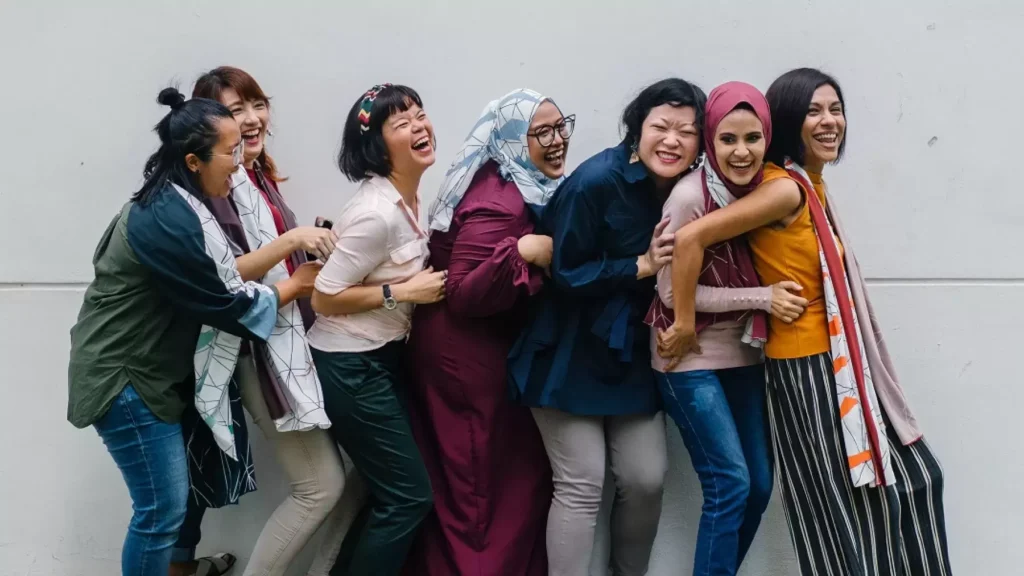Peer support is having someone in your corner who you can come to for resources and support.
The pandemic; tragic shootings; racism against Black, Indigenous, People of Color (BIPOC), and the rise in hateful violence against Asian Americans and Pacific Islanders (AAPIs) – all highlight the need for accessible, peer-led, emotional support. Peer support can make an impact in these types of crisis situations because you are talking to someone who just “gets it.” A person who has been there before and has experience navigating the system will know about a wider range of resources.
Peer support can be a friendlier introduction to mental health; it can be more accessible and approachable than clinical services. Many people fall through the gaps in our current system because of financial barriers, culturally-illiterate care, and lack of therapeutic resources in general. Peer support catches folks who fall through the cracks and oftentimes is a resource for people who need compassionate care the most.
In peer support, you can express yourself more freely knowing you will be heard by someone who has been there and survived. There is a certain social equity that is created. Lived experience and mutuality is at the heart of peer support. It is solidarity for one another, in action.
In my own recovery process from a major car accident, peer support, along with therapy, has made all the difference. I am a traumatic brain injury and abuse survivor. I would not wish any of my experiences on a single living being, however, knowing that there are others who have a personal understanding of similar experiences has helped me feel less alone. Living with post-traumatic stress disorder (PTSD), chronic pain from injuries, panic disorder, attention deficit hyperactivity disorder (ADHD), and depression is not easy.
Even still, the social support and guidance from other peers helps me build resilience. I am more than my diagnosis. Sharing personal lived experience can lead to a profound shift–from telling an “illness story” to a “recovery story.” Peers can support their own recovery and that of others through practical and emotional support such as:
- using positive self-disclosure,
- inspiring hope,
- promoting empowerment and self-efficacy, and
- growing social networks.
I have personally found joy in facilitating a peer-led group called Lotus, centering around the experiences of LGBTQ Asians. Each month we meet and check in with each other, share our thoughts on chosen or freeform topics, and strive to provide a safe, supportive space for all to express themselves freely. We honor the diverse diaspora of all Asian cultures as well as AAPI perspectives.
Staying connected with people during a time where the world has varying degrees of self-isolation is critical. Having an identity-specific space where I can connect with others has been healing, cathartic, and empowering.
Demonstrating the need for peer-led spaces, in the first two years of Peer Support Space, our peer spaces have been used over 8,000 times. In response to COVID-19, we shifted to virtual resources to continue providing support to an international community during a time of heightened distress.
We welcome anyone looking for a peer support space to connect with others with shared lived experience. Check us out and join our chosen family and healing community. Visit Peer Support Space to learn more about their resources.
 Tea Tran is a facilitator of Lotus, an Asian LGBTQ peer support group with Peer Support Space. Tea is also a photographer and empowers clients to explore their best selves by providing a photoshoot experience and custom wall art galleries. She strives to create a safe space where you can discover more about yourself and provides support along your journey to peace through mental health advocacy. Tea serves the community through the arts as an LGBT female-owned small business owner with certifications in Diversity and Inclusion.
Tea Tran is a facilitator of Lotus, an Asian LGBTQ peer support group with Peer Support Space. Tea is also a photographer and empowers clients to explore their best selves by providing a photoshoot experience and custom wall art galleries. She strives to create a safe space where you can discover more about yourself and provides support along your journey to peace through mental health advocacy. Tea serves the community through the arts as an LGBT female-owned small business owner with certifications in Diversity and Inclusion.


